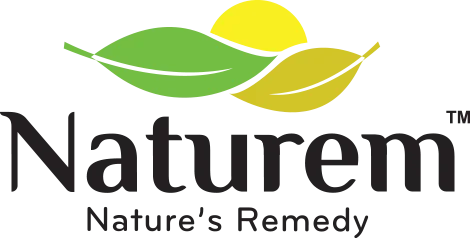
Natural Ways to Support Brain Health: Can Supplements Replace a Healthy Lifestyle?
svk_minhhuyShare
Your brain is the command center of your body, but in today’s fast-paced world, stress, poor sleep, and aging can take a toll on its performance. More people are turning to herbal remedies for a natural way to boost memory, sharpen focus, and protect against cognitive decline. But can herbs really make a difference?
Table of Contents
- Why Does Brain Health Matters?
- Key Herbal Allies for Brain Support
- A Healthy Lifestyle – The Irreplaceable Foundation
- When to Consider a Brain Supplement?
- FAQs
Why Does Brain Health Matters?

Your brain governs every thought, emotion, and decision. Its health impacts memory, learning, focus, and overall mental clarity. Cognitive decline can lead to forgetfulness, reduced focus, and even serious conditions like Alzheimer’s or Parkinson’s.
Keeping your brain healthy means keeping your life more complete. So can herbal remedies really improve brain health? The answer is yes. Research indicates that herbs like Ginkgo biloba and Lion’s Mane mushroom may enhance memory, focus, and support cognitive resilience.
Here are some herbal remedies that can help support your brain.
Key Herbal Allies for Brain Support

Before adding supplements, it’s worth knowing which herbs science supports:
- Ginkgo biloba: Enhances brain blood flow, memory, and processing speed.
- Lion’s Mane Mushroom: Contains compounds that stimulate nerve cell growth and support cognition.
- Fo-ti (Polygonum multiflorum): Traditionally used to boost vitality, memory, and reduce stress.
- Poria cocos: Supports sleep, eases anxiety, and reduces inflammation.
- Hydroxytyrosol: A potent olive-derived antioxidant that crosses the blood-brain barrier to protect neurons.
While these herbs can play a powerful role in supporting brain health, their benefits are maximized when paired with a healthy lifestyle.
A Healthy Lifestyle – The Irreplaceable Foundation

While herbs are beneficial, they cannot replace activities such as:
- Regular exercise to increase brain blood flow.
- A diet rich in omega-3s, leafy greens, and berries to fight inflammation.
- 7–9 hours of quality sleep to consolidate memories.
- Ongoing mental engagement through reading, learning, and socializing.
Even with a healthy lifestyle, certain challenges like stress, poor sleep, or waning focus can still arise and that’s when a targeted brain supplement may be worth considering.
When to Consider a Brain Supplement?

If stress, poor sleep, or reduced concentration are affecting your daily life, a well-formulated brain supplement can help fill the gaps.
For example, Naturem™ Memory+ blends Ginkgo biloba, Lion’s Mane, Fo-ti, Poria cocos, and Hydroxytyrosol to improve brain circulation, protect neurons, support sleep, and enhance focus.

Herbal remedies can support brain health but only when paired with healthy lifestyle habits. Think of them as partners, not miracles. Investing in your brain today is an investment in your future clarity.
If you want a natural companion on that journey, Naturem™ Memory+ is worth considering.
FAQs
How long does it take to see results?
Usually 4–8 weeks, depending on individual health and habits.
Are there side effects?
Generally safe when taken as directed, though mild dizziness or digestive upset may occur.
Can I take it with prescription medications?
Always check with your doctor to avoid potential interactions.
References
Ratey, J. J. (2008). Exercise and the brain: A review of the effects of physical activity on cognition and well-being. Psychological Science Agenda. Link
Gómez-Pinilla, F. (2008). Brain foods: The effects of nutrients on brain function. Nature Reviews Neuroscience, 9(7), 568-578. Link
Krikorian, R., et al. (2010). Blueberry supplementation improves memory in older adults. Journal of Nutritional Biochemistry, 21(8), 770-779. Link
Walker, M. (2017). Why We Sleep: Unlocking the Power of Sleep and Dreams. Link
Zeidan, F., et al. (2010). Mindfulness meditation improves cognition: Evidence of brief mental training. Consciousness and cognition, 19(2), 201-220. Link
Bassuk, S. S., et al. (2009). Social engagement and healthy aging: Findings from the National Social Life, Health, and Aging Project. The Journals of Gerontology Series B: Psychological Sciences and Social Sciences, 64B(5), 671-681. Link
Related Posts:
Stay Connected!
Sign up for our newsletter to receive exclusive offers and be the first to know about our new arrivals.
Health Goal
Categories List
Tags
Explore More from This Topic
-
Top 7 Foods That Lower Blood Sugar Immediately
April 04, 2025
Maintaining healthy blood sugar levels is a cornerstone of overall well-being, especially for individuals navigating prediabetes, type 2 diabetes, or focusing on long-term metabolic health....
-

Safe Home Remedies for Croup: Do Humidifiers Actually Help?
April 04, 2025
Croup is a distinctively terrifying experience for parents. Waking up to a child struggling to breathe, accompanied by a harsh, barking sound that resembles a...
-

Natural Approaches to Managing Cirrhosis Fatigue and Digestive Issues
April 04, 2025
Struggling with fatigue and poor digestion from cirrhosis? Learn evidence-based natural remedies that support energy, bile flow, and daily comfort.
-

Herbal Safety for Cirrhosis: Which Supplements to Avoid and Why
April 04, 2025
Detox teas and herbs can worsen liver disease. Discover the herbs to avoid with cirrhosis and safer, evidence-based alternatives.
-

The Cirrhosis-Friendly Diet: Integrating Anti-Inflammatory Herbs into Daily Meals
April 04, 2025
Discover the best herbs for a liver-friendly diet with cirrhosis. Learn how turmeric, ginger, garlic, and low-sodium strategies reduce inflammation and fluid retention.
-

The Comprehensive Guide to Liver Cirrhosis: Stages, Management, and the Role of Herbal Support
April 04, 2025
Your liver is essentially the chemical processing plant of your body. It is a resilient, hardworking organ that detoxifies your blood, produces essential proteins like albumin, and...





